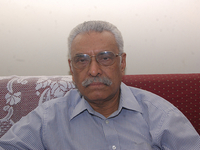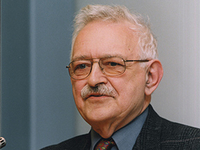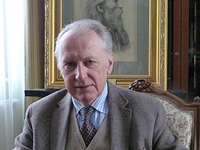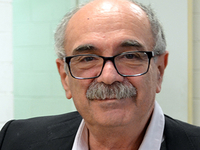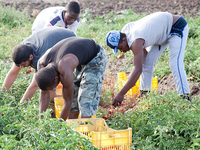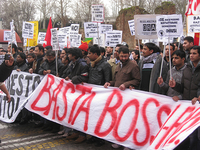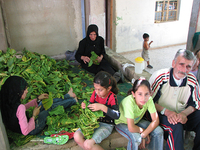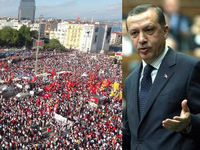GD 4.4 - December 2014
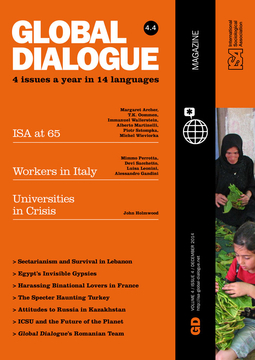
Global Dialogue is available in multiple languages!
Select the language to download the issue.
Editors:
Michael Burawoy.
Associate Editor:
Gay Seidman.
Managing Editors:
Lola Busuttil, August Bagà.
Consultants:
Ana Villarreal.
Media Consultant:
Gustavo Taniguti, José Reguera.
Consulting Editors:
Margaret Abraham, Markus Schulz, Sari Hanafi , Vineeta Sinha, Benjamin Tejerina, Rosemary Barbaret, Izabela Barlinska, Dilek Cindoğlu, Filomin Gutierrez, John Holmwood, Guillermina Jasso, Kalpana Kannabiran, Marina Kurkchiyan, Simon Mapadimeng, Abdul-mumin Sa’ad, Ayse Saktanber, Celi Scalon, Sawako Shirahase, Grazyna Skapska, Evangelia Tastsoglou, Chin-Chun Yi, Elena Zdravomyslova.
REGIONAL EDITORS
Arab World: Sari Hanafi , Mounir Saidani.
Brazil: Gustavo Taniguti, Andreza Galli, Renata Barreto Preturlan, Ângelo Martins Júnior, Lucas Amaral, Rafael de Souza, Benno Alves.
Colombia: María José Álvarez Rivadulla, Sebastián Villamizar Santamaría, Andrés Castro Araújo, Katherine Gaitán Santamaría.
India: Ishwar Modi, Rajiv Gupta, Rashmi Jain, Jyoti Sidana, Nidhi Bansal, Uday Singh.
Iran: Reyhaneh Javadi, Zohreh Sorooshfar, Abdolkarim Bastani, Niayesh Dolati, Mitra Daneshvar, Faezeh Khajehzadeh.
Japan: Satomi Yamamoto, Yusuke Abe, Yuri Hitomi, Yutaka Ito, Seijiro Katayama, Koki Kawakami, Ayaka Komiya, Masahiro Matsuda, Masakazu Matsuzaki, Yuka Mitani, Nami Morodome, Hiroki Nakamura, Masaki Okada, Takazumi Okada, Yukari Sadaoka, Fuma Sekiguchi, Kohei Takejiri, Misato Tsuruda, Kazuki Uyeyama, Wataru Wada, Tomoko Wakiya, Kasumi Yamauchi, Sakiye Yoshioka.
Poland: Mariusz Finkielsztajn, Weronika Gawarska, Krzysztof Gubański, Kinga Jakieła, Kamil Lipiński, Przemysław Marcowski, Kuba Barszczewski, Martyna Miernacka, Mikołaj Mierzejewski, Karolina Mikołajewska, Adam Müller, Zofi a Penza, Konrad Siemaszko, Anna Wandzel, Hanna Wierzbicka, Marcin Zaród.
Romania: Cosima Rughiniș, Ileana-Cinziana Surdu, Telegdy Balazs, Adriana Bondor, Ramona Cantaragiu, Miriam Cihodariu, Ruxandra Iordache, Andra Larionescu, Mihai Bogdan Marian, Monica Nădrag, Mădălin-Bogdan Rapan, Alina Stan, Oana Mara Stan, Elena Tudor, Cristian Constantin Vereș.
Russia: Elena Zdravomyslova, Anna Kadnikova, Asja Voronkova.
Taiwan: Jing-Mao Ho.
Turkey: Yonca Odabas, Günnur Ertong Attar, İlker Urlu, Zeynep Tekin Babuç, Hüseyin Odabaş.
GD 4.4 - December 2014
Editorial
The ISA at 65
To commemorate the 65 years since the birth of the ISA, a panel of former Presidents was convened at the Yokohama World Congress to evaluate the past and look to the future. Their evaluations are published in this issue of Global Dialogue. They lament the unstoppable march of English as lingua franca against which they vainly hope that everyone become bilingual. The increasing size of the Congress seems equally inexorable – celebrated by some, questioned by others. Immanuel Wallerstein recalls the first Congress he attended in 1959 when there were intimate dialogues among the leading sociologists, nearly all, in those days, one might add, from the North. Margaret Archer considers the greater inclusiveness an incomplete project. She is critical of the rising power of Research Committees that have balkanized the ISA and prevented it from developing overarching visions of sociology. Their rise is part of deepening professionalization – the world of impact factors and performance indicators – driving ever-more superficial research. And, indeed, in this issue John Holmwood condemns the latest advances in audit culture engulfing academia.
This is a theme taken up by Michel Wieviorka who addresses the dangers of hyper-specialization and the challenges of the digital world. He also argues that sociological research must not overlook the power of evil in the modern world. T.K. Oommen follows with the obstacles to an international sociology – the continuing although anachronistic focus on the nation-state, arguing that we must separate nation from state and look to forces operating above and below the state. Piotr Sztompka takes internationalization to a polemical extreme in defending “one sociology for many worlds” and despairs of those who would create political divides in our midst whether they be from revolutionary pretenders or the advocates of indigenous sociologies. Finally, Alberto Martinelli, befitting his new role as President of the International Social Science Council, speaks of the important role sociology can play in advancing global democratic governance.
These are wise and distinguished sociologists with important warnings about the plight of sociology. But as Global Dialogue has shown time and again, the young sociologists of today are facing these challenges with courage and innovation. In this issue we have papers on the plight of migrant laborers in Italy and the way Italian youth are coping with economic crisis. We have papers from Lebanon on the changing face of sectarianism and how farmers survive in the Southern Lebanon war zone. We have papers on discriminated outsiders, “gypsies” in Egypt and immigrants in France. We have papers on the political fallout of the Gezi protests in Turkey, the manipulation of the media in Kazakhstan and a report on what natural scientists are doing about the plight of the planet. Despite the warnings of our former Presidents, sociology on the ground is doing well, reporting on a world that is not doing so well.
Michael Burawoy, editor of Global Dialogue
Global Dialogue can be found in multiple languages.
Submissions should be sent to globaldialogue@isa-sociology.org.


